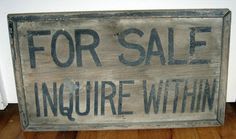Today’s blog is going to get straight to the point, because although it isn’t a glamorous topic, it is very important.
Did you know that there are certain variables in the market that cause people to perceive a false perception of what the market is?
That’s right. There are a lot of different factors that can influence the speed the market goes down.
The Single Biggest Factor In the Market Slowing Down Is…

The biggest factor that impedes market progress, is human nature.
In reality, there’s no reason for a market to drop as fast it does when it does, but it’s fear and skepticism that lead to people being scared, and through their cynicism they directly cause the market to crash.
What do I mean by this?
Psychology Plays a Huge Role in Our Perception of the Market
There are a ton of factors that psychologically shift people’s mentality and make a market fall faster than it needs to. People don’t realize that you are in control of your own destiny and all of us are responsible for a market going up or down.
We all know that an avalanche can start with just a little bit of momentum. At first, it starts off small, and then it gradually builds until it is a major problem. The same concept applies to how the housing market can suddenly change. It starts with a handful of people who decide that they want to price their homes outside the market range.
When they price their homes too high, they are hoping to sell it to some crazy idiot for a ridiculous price. This may not be a realistic number, but if someone is gullible enough to purchase at that price, it starts a new trend, and other people begin overpricing their homes. While it may seem like a few houses don’t matter, because after all, what’s one or two overpriced homes in the grand scheme of things--they do. Just like how our democracy works, every vote counts, and when millions of people believe that one vote won’t matter, it starts accounting for a high percent of the population. Similarly, the housing market begins feeling the effects in a similar way.
When sellers have their heads in the clouds and try to shoot for exorbitant numbers, agents start seeing crazy numbers populating in the MLS and then potential buyers and other sellers start taking notice.
While agents are able to remain level-headed and recognize what’s happening, most homeowners aren’t aware of what’s going on, and this lack of education causes panic.
This is why I’m writing this blog, because no one explains these types of things to homeowners, and since it’s not common knowledge, it can cause major problems.
What tends to happen as an aftereffect is that when people start seeing huge numbers on the MLS and see a bunch of overpriced properties, they think the bubble is about to burst and they don’t pull the trigger. However, that’s only one problem.
An Even Bigger Problem: Misleading Sellers
A second problem (which is even worse in my opinion) are sellers that have no serious interest in selling their home at the correct price. What tends to happen with these types of sellers is that they place a huge price tag on their home, and unlike the first group of people, they have no intention of selling their home--they just want to see if they can get a random buyer willing to pay twice what it’s worth. I mean of course they want to sell their home but not u less they get a stupid number.
Since these homes don’t sell, it could seem like it isn’t that big of a deal, because after all what’s the harm in hoping you hit the lottery and someone pays you a fortune for something that didn’t cost you nearly that much when you bought it? The problem is that it misconflates the numbers for everyone else, and throws a serious wrench in the gears.
These insincere sellers don’t have anything to lose, but they skew the MLS for everyone else who is trying to get an accurate price range. You can easily see how this quickly becomes a problem, especially when these handful of houses sit on the MLS, and continuously go on and off the market. I can even name a few addresses on properties that I personally know have been sitting on the market since the Carter administration.

Seriously, there are houses that have literally been on the market for so long that I can remember not being old enough to order a drink in a bar, when I first saw them. I don’t know whether to blame the sellers, the brokers, or both--but when you see a house on the market for five or six years and you start to see several of these homes continuously staying on the market, it just adds to the conception that things are sitting.
Most people think:
“Oh my God, I’ve seen this house it’s been on the market forever! There’s so much product out there we shouldn’t be buying a house right now, things are sitting everywhere. But then I’ve seen things that are dropping in price. What a crazy market, it’s so oversaturated, prices are falling, and inventory is sitting! This is a crazy market. Why in the world would we buy right now the market is so oversaturated and prices are dropping!” (Paces back and forth in the kitchen panicking.)
The Aftermath
So, guess what?
The moral of this story, is: price your homes correctly. Because when some homeowners act selfishly, the market suffers.
Listen, it’s simple math. If you buy something for a dollar today, it’s not worth $1.25 the next day! Pace yourself and price your property accordingly. It’s best for you and it’s best for all of us else out there.





